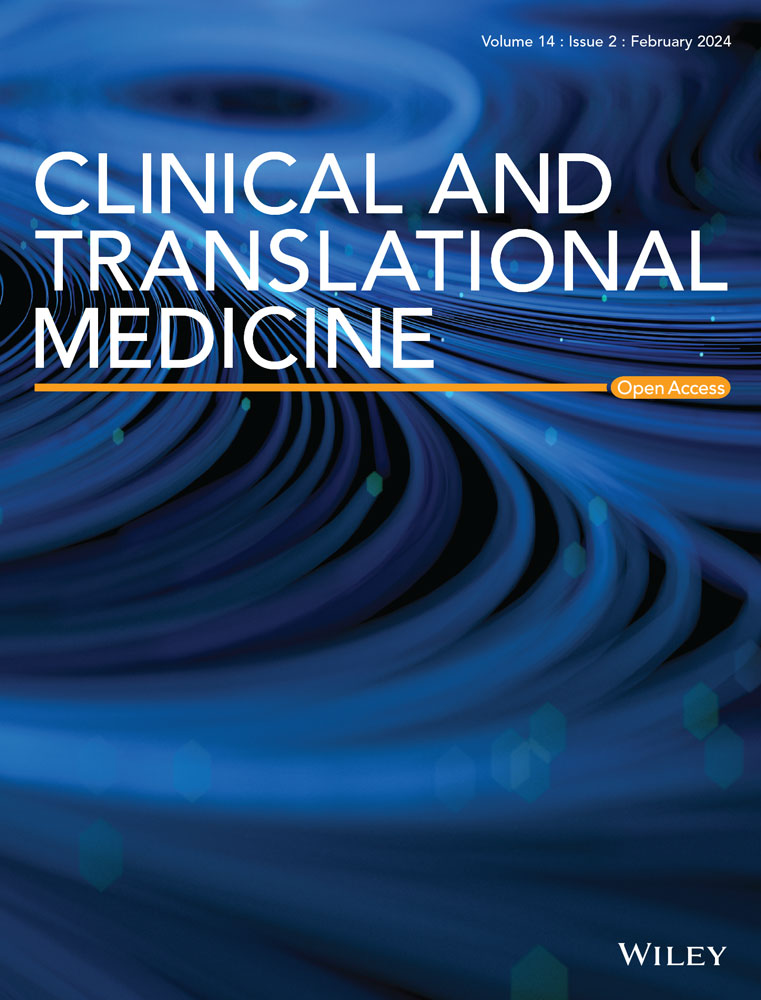Exosome-derived long non-coding RNA AC010789.1 modified by FTO and hnRNPA2B1 accelerates growth of hair follicle stem cells against androgen alopecia by activating S100A8/Wnt/β-catenin signalling
Abstract
Background
The increased incidence of androgenic alopecia (AGA) causes adverse physiological and psychological effects on people of all genders. The hair follicle stem cells (HFSCs) have displayed clinical improvements on AGA. However, the molecular mechanism of HFSCs against AGA remains elusive.
Methods
The expression and prognosis of lncRNA AC010789.1 in AGA hair follicle tissues were assessed by qRT-PCR analysis. CCK-8, EdU and Transwell analysis were utilized to assess cell growth. The specific binding between AC010789.1 and FTO mediated m6A modification or the effect of AC010789.1 on hnRNPA2B1, S100A8 and Wnt/β-catenin signaling expression was confirmed by bioinformatic analysis, RIP, RNA pull-down and Western blot assay. The effects of Exosome-loaded AC010789.1 prompted HFSCs proliferation and hair follicle regeneration were confirmed in hairless mice.
Results
We herein found that the mRNA levels of lncRNA AC010789.1 were decreased in AGA tissue samples but increased in HFSCs of surrounding normal tissue samples. Overexpression (OE) of AC010789.1 promoted HFSC proliferation, DNA synthesis and migration as well as K6HF and Lgr5 upregulation, whereas knockdown of AC010789.1 showed the opposite effects. The total or AC010789.1 m6A levels were reduced and FTO demethylase was upregulated in AGA tissue samples, but these indicated the reverse results in HFSCs of surrounding normal tissue samples. FTO OE decreased AC010789.1 m6A levels and its mRNA levels in HFSCs and abolished AC010789.1-induced HFSCs proliferation. In addition, AC010789.1 was identified to bind to m6A reader hnRNPA2B1, which was downregulated in AGA but upregulated in HFSCs of surrounding normal tissue samples. hnRNPA2B1 OE attenuated AC010789.1 knockdown-induced inhibition of HFSCs proliferation. Moreover, AC010789.1 could bind to and enhance downstream S100A8 protein expression, which mediated Wnt/β-catenin signaling to accelerate HFSCs proliferation. Exosome-loaded AC010789.1 prompted HFSCs proliferation and hair follicle regeneration in mice.
Conclusions
Our findings demonstrated that exosome-derived lncRNA AC010789.1 modified by FTO and hnRNPA2B1 facilitated the proliferation of human HFSCs against AGA by activating S100A8/Wnt/β-catenin signaling.
Key points
- Long non-coding RNA (lncRNA) AC010789.1 was downregulated in hair follicle tissues from androgenic alopecia (AGA) and upregulated in hair follicle stem cells (HFSCs).
- LncRNA AC010789.1 promoted the proliferation and migration of HFSCs.
- FTO/hnRNPA2B1-mediated m6A modification of lncRNA AC010789.1 promoted HFSCs growth by activating S100A8/Wnt/β-catenin signalling.
- Exosome-derived AC010789.1 accelerated HFSCs proliferation.


 求助内容:
求助内容: 应助结果提醒方式:
应助结果提醒方式:


